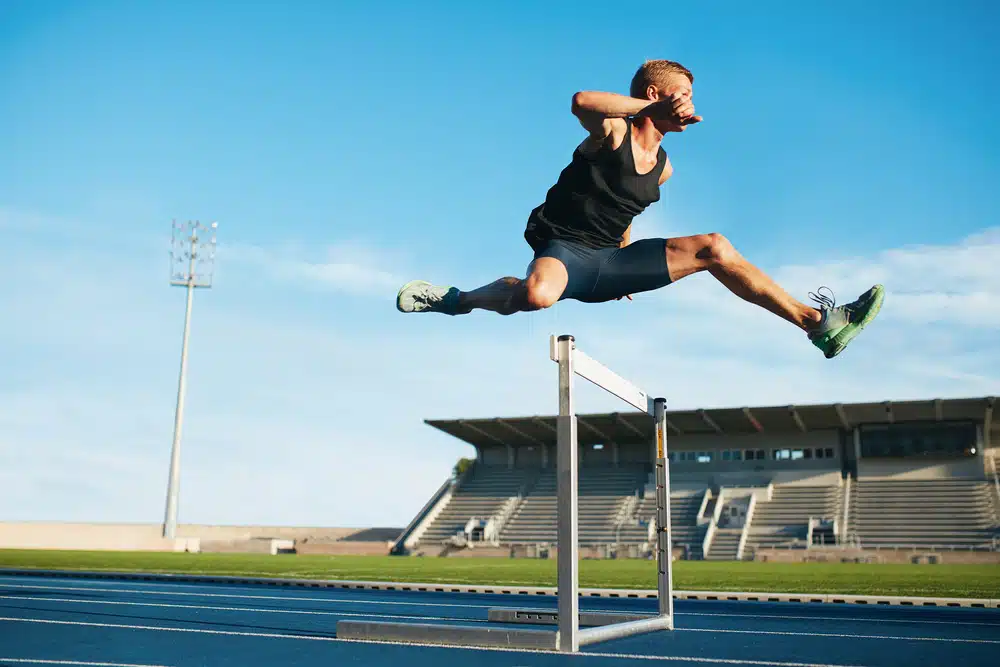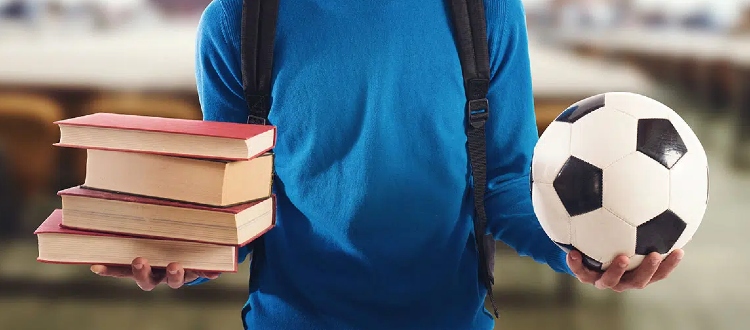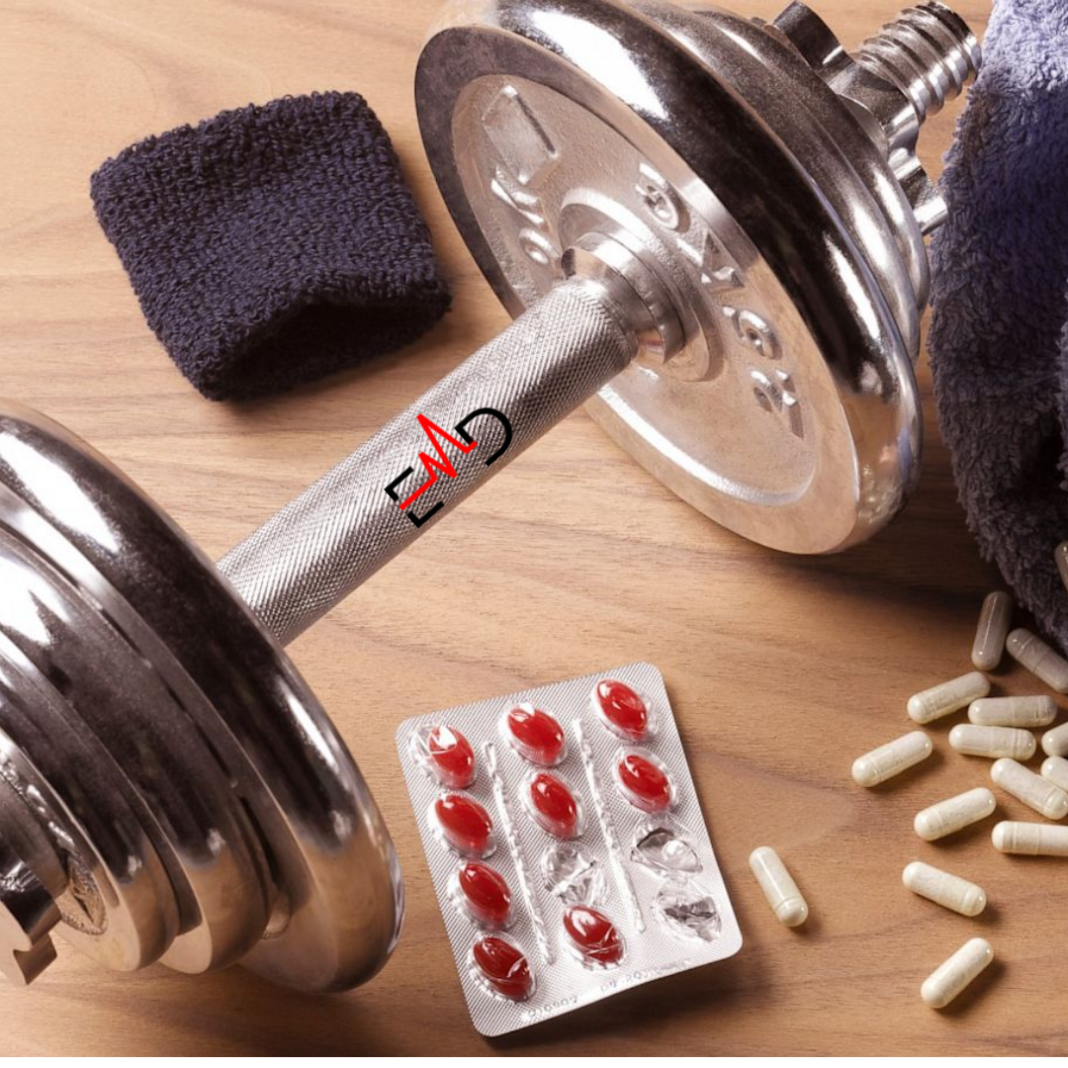Exercise Daily. Balancing life as a student-athlete is an ongoing challenge, especially within the university setting. Many athletes grapple with a hectic daily schedule, whether managing athletic commitments, academic responsibilities like exams and homework, or nurturing a life outside of sports. The stress of juggling these obligations can be overwhelming, potentially leading to burnout. Let’s see how Balancing Athletics with Life and what to do.
However, student-athletes must find equilibrium. Being part of a team and involved in sports offers tremendous opportunities to compete and grow athletically, but it’s equally important to excel academically and maintain a healthy life balance.

Importance of Balance for Student-Athletes
Student-athletes must manage their time effectively and learn strategies to lessen stress to achieve this balance. Universities often offer resources like counselling, study groups, and access to therapists to help athletes productively tailor their schedules. It’s essential to devote sufficient time to schoolwork while ensuring time for rest, relaxation, and personal interests.
Balance in Sports and Academics
Being a student-athlete means navigating the delicate equilibrium between sports and academics. It is crucial to strike a balance that allows athletes to thrive in both areas. Achieving this balance requires careful planning, effective time management, and a strong support system. Student-athletes can maximize their potential and enjoy a well-rounded college experience by finding harmony between sports and academics.
The Demands of Being a Student-Athlete
Being a student-athlete is akin to having a full-time job. The demands of rigorous training sessions, competitions, and travel schedules can be immense. Balancing these commitments with academic responsibilities can be challenging. Student-athletes often face time constraints, leading to added pressure and stress. However, with proper time management and prioritization, it is possible to meet the demands of both sports and academics.
The Impact of Athletics on Mental Health
Mental health is vital to overall well-being, and student-athletes are not immune to its effects. The pressure to perform high in sports and academics can affect their mental well-being. It is essential to recognize the signs of stress and anxiety and take proactive steps to promote mental wellness. Strategies such as seeking support, practising self-care, and maintaining a healthy mindset can help student-athletes cope with their challenges.
Balancing School and Sports: Time Management Strategies
Time management is the key to successfully balancing school and sports. Student-athletes must learn effective strategies to optimize their time and ensure they can excel academically while pursuing their athletic goals. This includes prioritizing tasks, creating structured schedules, utilizing study sessions efficiently, and maximizing downtime between practices and competitions. By managing time wisely, student-athletes can find balance and reduce stress.
Balancing Athletics, Academics, and Personal Life
Athletes should prioritize their well-being by eating well, seeking support, and recognizing when to ask for help. By learning to manage their time efficiently, student-athletes can navigate their busy schedules and excel both on and off the field.
Nurturing a Balanced Social Life
A well-rounded life involves more than just sports and academics. Student-athletes also need to nurture their social lives to maintain a healthy balance. Building and maintaining meaningful relationships, participating in social activities, and having downtime for relaxation and fun are essential aspects of a balanced life. By prioritizing their social well-being, student-athletes can create a support network that enhances their overall experience.
Achieving a Well-Rounded Life: Balancing Sports and Academics
Balancing sports and academics goes beyond time management. It requires a mindset shift that acknowledges the value of both pursuits. Student-athletes should strive for academic excellence while excelling in their athletic endeavours. This involves setting realistic goals, seeking academic support, and cultivating resilience to overcome challenges. By embracing a well-rounded approach, student-athletes can thrive in all aspects of their lives.
Seeking Support and Building a Strong Support System
No student-athlete should face the challenges alone. Building a strong support system is crucial for maintaining balance and managing the demands of sports, academics, and personal life. This support system can include coaches, teammates, friends, family, academic advisors, and even sports psychologists. Seeking help when needed and relying on the support of others can alleviate stress, provide guidance, and foster a sense of community.

Preventing Burnout and Promoting Well-Being
Recognizing the Signs of Burnout
Balancing the demands of athletics, academics, and personal life can sometimes lead to burnout. Recognizing the signs of burnout is essential to prevent it from escalating. Symptoms may include chronic fatigue, decreased motivation, irritability, and a decline in performance. Awareness of these signs enables student-athletes to take necessary steps to prioritize self-care and adjust their schedules or commitments as needed.
Stress Relief Techniques for Student-Athletes
Managing stress is crucial for maintaining a healthy balance. Student-athletes should incorporate stress relief techniques into their daily routines. This can include deep breathing exercises, meditation, yoga, journaling, or engaging in hobbies outside of sports and academics. Finding healthy outlets for stress can help student-athletes recharge, refocus, and perform at their best in all areas of life.
The Role of Sports Psychology
Sports psychology plays a vital role in helping student-athletes navigate their challenges. Sports psychologists can provide valuable support and guidance in managing stress, enhancing mental resilience, and optimizing performance. Student-athletes should consider seeking the assistance of a sports psychologist to develop coping strategies, improve mental well-being, and achieve their full potential both on and off the field.

Conclusion
Balancing athletics with life is a continuous process that requires intentionality and effort. Student-athletes must recognize the importance of balance and prioritize their well-being to excel in sports, academics, and personal life. By implementing effective time management strategies, seeking support, and practising stress relief techniques, student-athletes can achieve a harmonious balance and thrive in all aspects of their lives.
FAQs – Balancing Athletics with Life: Tips for Time Management and Stress Relief
Q: How can student-athletes manage their academic workload during the sports season?
A: Student-athletes can manage their academic workload by creating a schedule, prioritizing tasks, utilizing downtime effectively, and seeking support from coaches and teachers.
Q: What are some common challenges faced by student-athletes?
A: Some common challenges include time management, balancing sports and academics, fatigue, pressure to perform in both areas and potential conflicts between practice/competition schedules and academic commitments.
Q: How can student-athletes handle conflicts between sports and academics?
A: Student-athletes can handle conflicts by communicating with coaches and teachers, planning ahead, proactively managing their time, and seeking flexible solutions when necessary.
Q: How important is rest and recovery for student-athletes?
A: Rest and recovery are crucial for student-athletes to prevent injuries, maintain physical and mental well-being, and optimize performance. It’s important to prioritize sleep, take regular breaks, and listen to your body’s needs.
Q: Can participating in sports have a positive impact on academic performance?
A: Yes, participating in sports can positively impact academic performance. Regular physical activity can improve cognitive function, concentration, and overall mental well-being, benefiting academic pursuits.
Q: How can student-athletes cope with the pressure to succeed in sports and academics?
A: Student-athletes can cope with pressure by setting realistic goals, seeking support from coaches, teachers, and peers, practising stress management techniques, and maintaining a healthy work-life balance.
Q: Is it possible for student-athletes to pursue a professional sports career while excelling academically?
A: While it can be challenging, it is possible for student-athletes to pursue a professional sports career while excelling academically. It requires strong time management skills, dedication, and support from academic institutions that provide flexible schedules and resources.
Q: How can student-athletes maintain their mental health and well-being?
A: Student-athletes can maintain their mental health by practising self-care, seeking support from professionals or counsellors when needed, staying connected with friends and family, and prioritizing activities that promote relaxation and stress relief.




